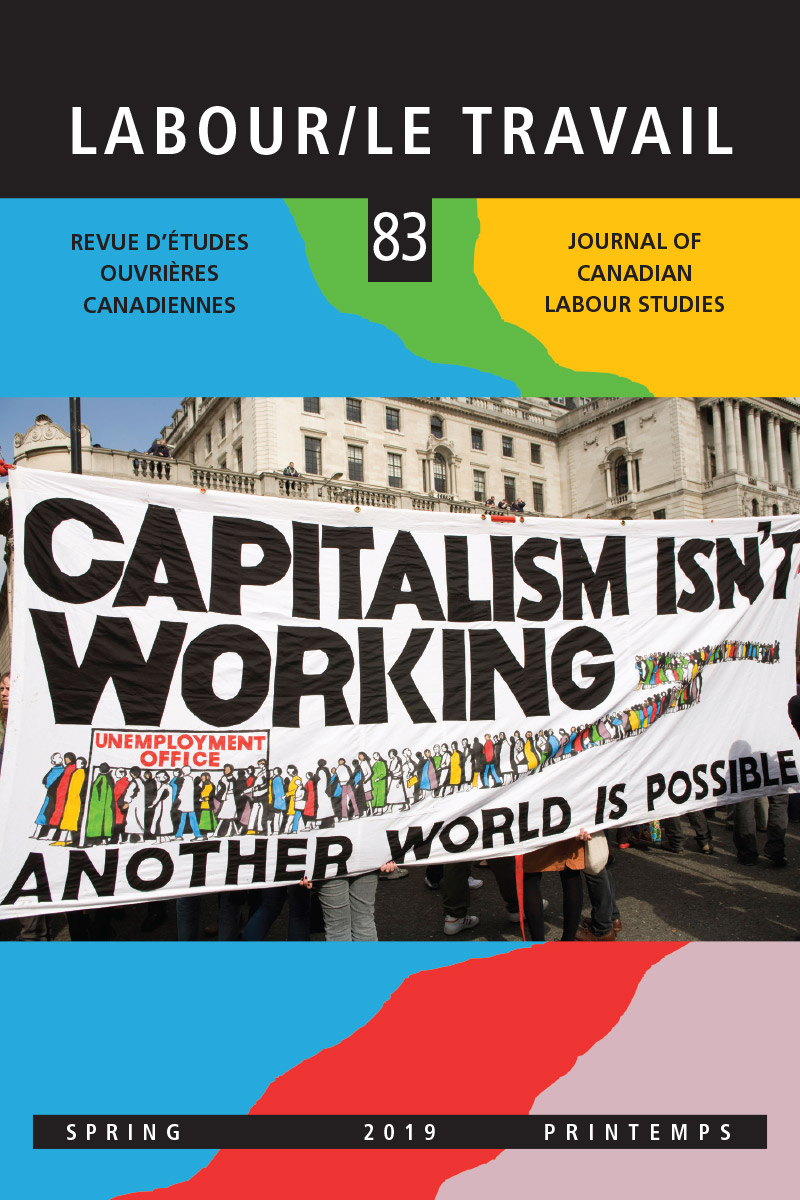Published 2019-05-15
How to Cite
Abstract
This article examines the political economy of nutrition as a state-sponsored strategy to extract greater productivity from industrial workers in both wartime and peacetime. During World War II, the state, together with its munitions-industry allies, broadly considered workers’ nutritional health as a critical component to achieving maximum wartime industrial production. Following the war, both the state and industry imagined the nutritional health of workers’ bodies as crucial to Canada’s postwar prosperity. Facilitating as well as frustrating these largely state-directed nutrition agendas was a combination of medico-scientific knowledge, the sometimes uncertain and unpredictable participation of both employers and workers, and wider national and international historical contexts.
Cet article examine l’économie politique de la nutrition en tant que stratégie parrainée par l’État pour accroître la productivité des travailleurs industriels, en temps de guerre comme en temps de paix. Au cours de la Seconde Guerre mondiale, l’État et ses alliés de l’industrie des munitions ont largement considéré la santé nutritionnelle des travailleurs comme un élément essentiel pour parvenir à une production industrielle maximale en temps de guerre. Après la guerre, l’État et l’industrie ont tous deux estimé que la santé nutritionnelle des corps des travailleurs était essentielle à la prospérité du Canada d’après-guerre. Faciliter mais aussi frustrer ces programmes nutritionnels largement dirigés par les États était une combinaison des connaissances médicales et scientifiques, une participation parfois incertaine et imprévisible des employeurs et des travailleurs, et des contextes historiques nationaux et internationaux plus vastes.
